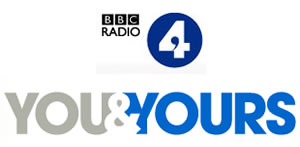Last Friday I was invited on to the BBC Radio 4 consumer programme You and Yours to discuss the UK Government’s scheme to shave off 5 billion calories from our daily intake (about 83 calories a person, apparently), and the role the food industry has here. You can listen to the broadcast here (starts at the 14.53 mark).
These are the main points I attempted to get over in a discussion with the presenter (Peter White) and a representative of the food industry (Terry Jones).
1. applying the calorie principle (e.g. eating less) has been found to be quite ineffective for the purposes of sustained weight loss, so it does not make sense to base interventions on this strategy.
2. Taking an unhealthy food and reducing the calories it contains by, say, reducing fat in it or the portion size does not magically transform it into a healthy food. A crappy chocolate bar with 250 calories in it rather than 280 is still a crappy chocolate bar.
3. Processed foods are often disruptive to blood sugar, which can drive hunger. Some are also very ‘rewarding’, which can also drive overeating. Even if calorie intake is controlled momentarily, there’s a good chance that people will go on to eat more foods later on as hunger bites.
4. The chances of these initiatives working is virtually nil, in my opinion. 5. We don’t need the Government’s or food-industry’s possibly well-meaning but wrong-headed ‘help’ to control our weight and attain better health. If we want these benefits, what we need to do is eat real food, and eat it regularly enough to ensure we never get too hungry (which makes healthy eating relatively easy).
